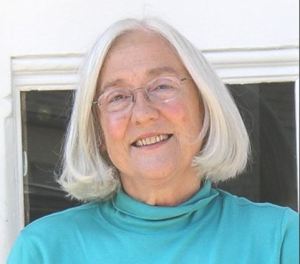About
 Lorna Smith Benjamin is a Psychotherapist; Creator of Structural Analysis of Social Behavior (SASB) for describing interactions with self and others; and of Interpersonal Reconstructive Therapy (IRT), which was developed for “treatment resistant“ psychiatric patients on the basis of what she learned after decades of using SASB in research and clinical practice.
Lorna Smith Benjamin is a Psychotherapist; Creator of Structural Analysis of Social Behavior (SASB) for describing interactions with self and others; and of Interpersonal Reconstructive Therapy (IRT), which was developed for “treatment resistant“ psychiatric patients on the basis of what she learned after decades of using SASB in research and clinical practice.
Plans for the future
After finishing this next book about the natural biological foundations of SASB and IRT, I want to create an LLC, probably called the IRT Institute, that will formally bring together several excellent colleagues who are active using in SASB and IRT. Through the IRT Institute, all of us will offer SASB and IRT workshops and consultations and if, possible, find funding for research projects. Each of us will maintain our own independent clinical practices

I recently learned that my mentor in child psychiatry, Dick Anderson, has died. Recalling all of the fun and educational times with him (and some socializing) lead to me remembering more of my time in Madison and all of the wonderful and generous teachers who helped me. You are at the top of the list. Coincidentally, I was working with a family with a challenging daughter who asked me for advice on how to respond to some of her intense, over reactive responses to situations. Suddenly, I recalled the basics of your SASB model that I had learned a bit about during my residency. Recalling the grid, remembering the axes, and describing the most reasonable stance for the parents to take as they tried to help the young girl incorporate more self control and self calming efforts gave me a bit of joy and nostalgia. Now I want to go back and find your book and also see if I still have your handouts.
Dear Jeffrey,
It’s a wonderful surprise to hear from you, despite the fact it comes with sad news about Dick.
Nice to learn we are “neighbors” too. And to see that you have such a distinguished and important position. Congratulations!
So glad to hear you rediscovered SASB. i have been a terrible “marketer” of it, but know in my heart it is a wonderful guide. i’m just finishing a third book that attempts to bring everything together… the wisdom from Harry H and John B about attachment, a bit about neurophysiology, SASB, object relations and behavioral technology. it is all fundamentally such an old story. i remember when behaviorism was marginal! i was working in WPI as a consultant trying to help a psychologist at Mendota get a nice paper published. That resulted in my paper in Psychometrika in 1965 using Latin Square design and modular algebra to “defend” the ABBA design and small samples. (it worked) ABBA and latin square had been wrongly dismissed because of alleged confounding of a “sequence by ordinal position” interaction with treatments. Totally false perspective based on ritualism rather than logic. LOL. not much has changed!
More later. thanks for writing. i send my very best wishes to you.
Lorna
Thanks, Lorna. Really appreciate your work and writing. At my stage of career, it is also great to hear the stories about trying to get people to pay attention to new understandings of the how and why of people’s behavior. Paradigm shifting is still difficult.
Also, do you still use the term “deep tracking”? It was terrific watching you help a person who was experiencing perplexed and confused thinking sound so together and clear. Also, remembering the lessons of the family therapy video about “who wanted the bed moved” are still valuable when working with troubled families.
hi again,
Yes, i still do those deep tracking interviews. Once a week when i consult at UNI (University of Utah Neuropsychiatric Institute) and in Workshops, The “main event” is to invite clinicians who are stuck with a patient they know well, and to “become” that patient in role play. I am repeatedly delighted to see how very well experienced clinicians know their patients at the level of the “primitive brain.” That makes it easy for me to demonstrate how to do those interviews and explain mechanisms i believe that account for the much appreciated results.
Now as I am increasingly aware of advancing age and my limits, i like most to teach interviewing style, case formulation and treatment planning .by consultations on Skype, and in workshops. i do hope it does not “die out” in this age of clipboards and checklists and looking forward to lab tests and machines that will bestow “the cure” on passive recipients .Supplemented, of course, by good training in basic skills. I do respect the power of medications and training in coping skills. My point is that much of “treatment resistance” is based on unconscious counterforces that need to be unblocked before the patient can/will allow him/herself to benefit from modern technology and move forward to suffer less and function better.
I never anticipated finishing my career trying so hard to defend and show how to use wisdom that has been given to us by so many people who have gone before us.
thanks for your kind words. it is heartening to know that you and others ARE out there.
Lorna
I am new to IRT and was exploring this framework for work with a client with schizotypal personality disorder, alexithymia, and a learning disability. The client struggles with insight, reflection, processing logical statements, and is a poor historian. Is IRT appropriate for individuals who struggle with insight, delusions, and the ability to make meaning from experiences?